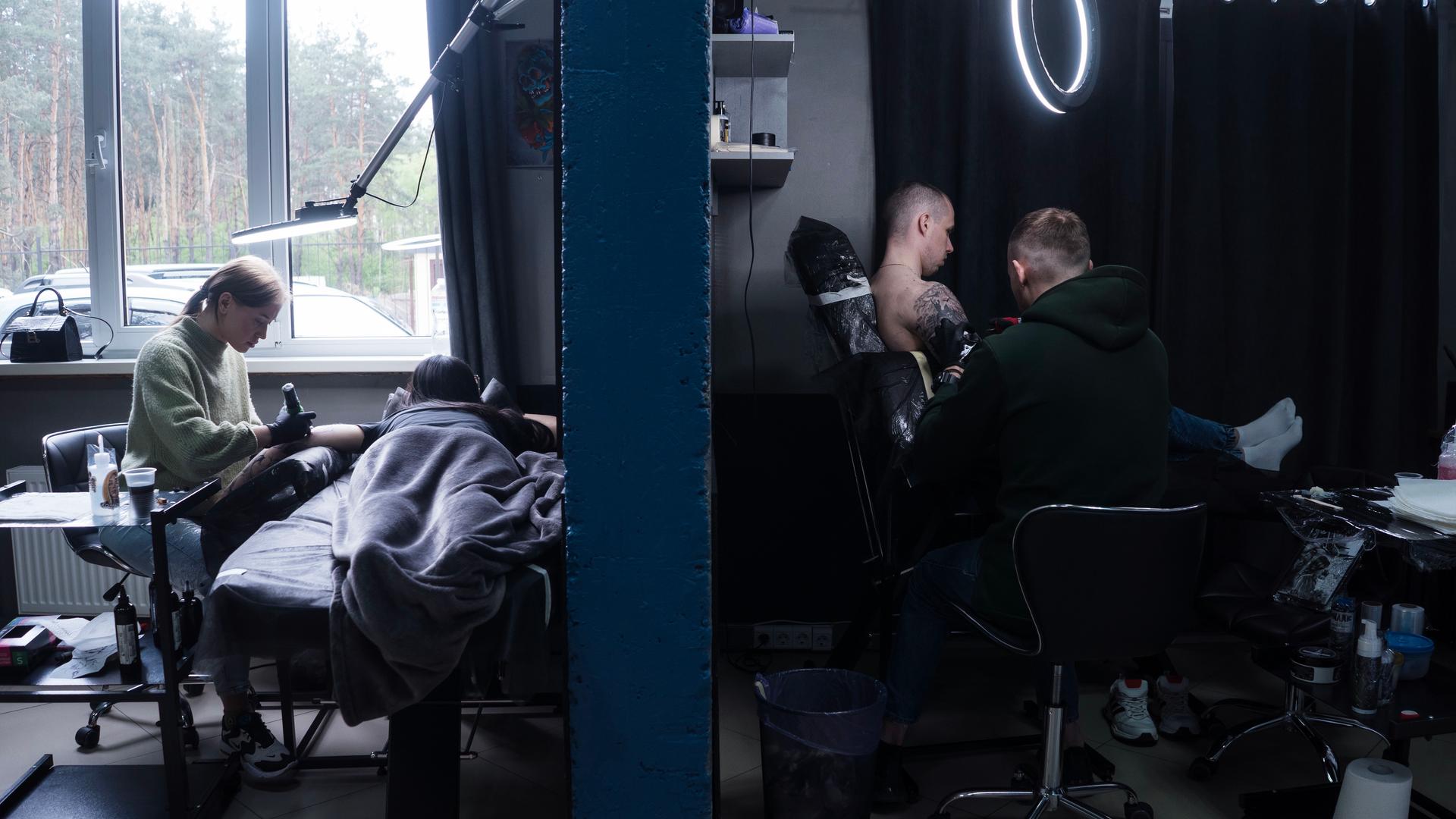It’s hardly surprising that Ukrainians are embracing symbols of their national identity — like their language, their flag and their music.
But another way many Ukrainians express their patriotism is on their bodies.
Mykola Dubrovin got his first tattoo eight years ago — and he didn’t start small.
“The first design was [a] rose, and the session was, I think, five or six hours,” he said. “After this session, I said, OK, please book me on the next one.”
The next one was 10 hours, and Dubrovin said he was already imagining the design for yet another tattoo.
“The feeling that I make something special on my body and maybe inside of me something tells me that OK, this is art. [If] you like the art, you need to continue doing this.”
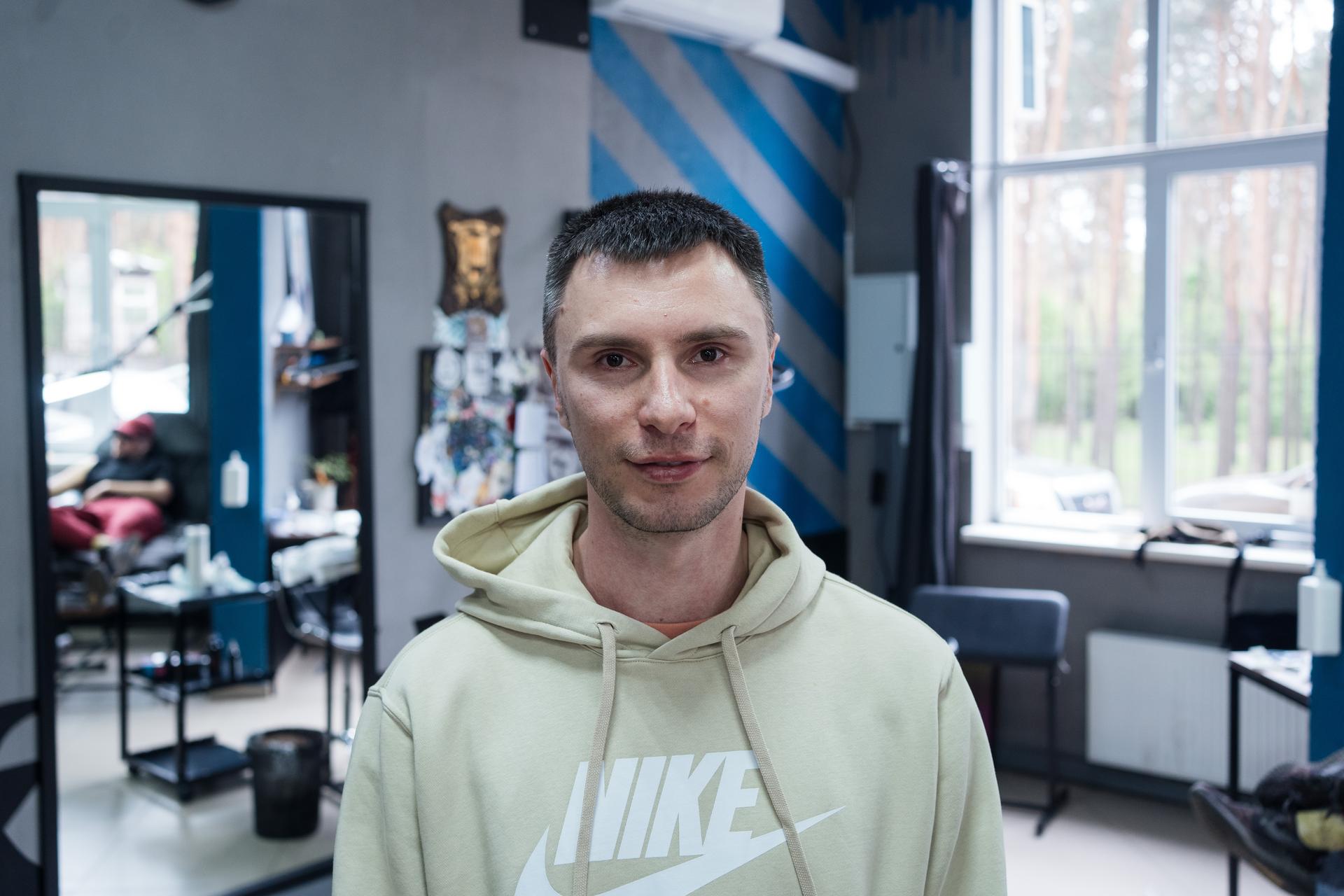
Tattoos became his passion.
In 2019, he opened his own studio in Ukraine’s capital, and the business thrived — up until Feb. 24 of last year, when Russia began its full-scale invasion of Ukraine.
Dubrovin said all of his windows were broken because a rocket fell onto his apartment building.
He was forced to shut down his business while everyone was scrambling to get their families to safety.
Three months later, when life in Kyiv felt safer, he reopened the tattoo studio.
“The first three or four months, 80% of people [wanted] patriotic tattoos,” Dubrovin said. “People want to make Ukrainian symbols to improve their feelings and show the Ukrainian culture.”
People came in and got Ukrainian flag tattoos, the Ukrainian trident, a map of the country, and other national symbols, Dubrovin said.
And the trend continues to this day.
Andriy Lukachyk is one of the tattoo artists at Dubrovin’s tattoo shop.
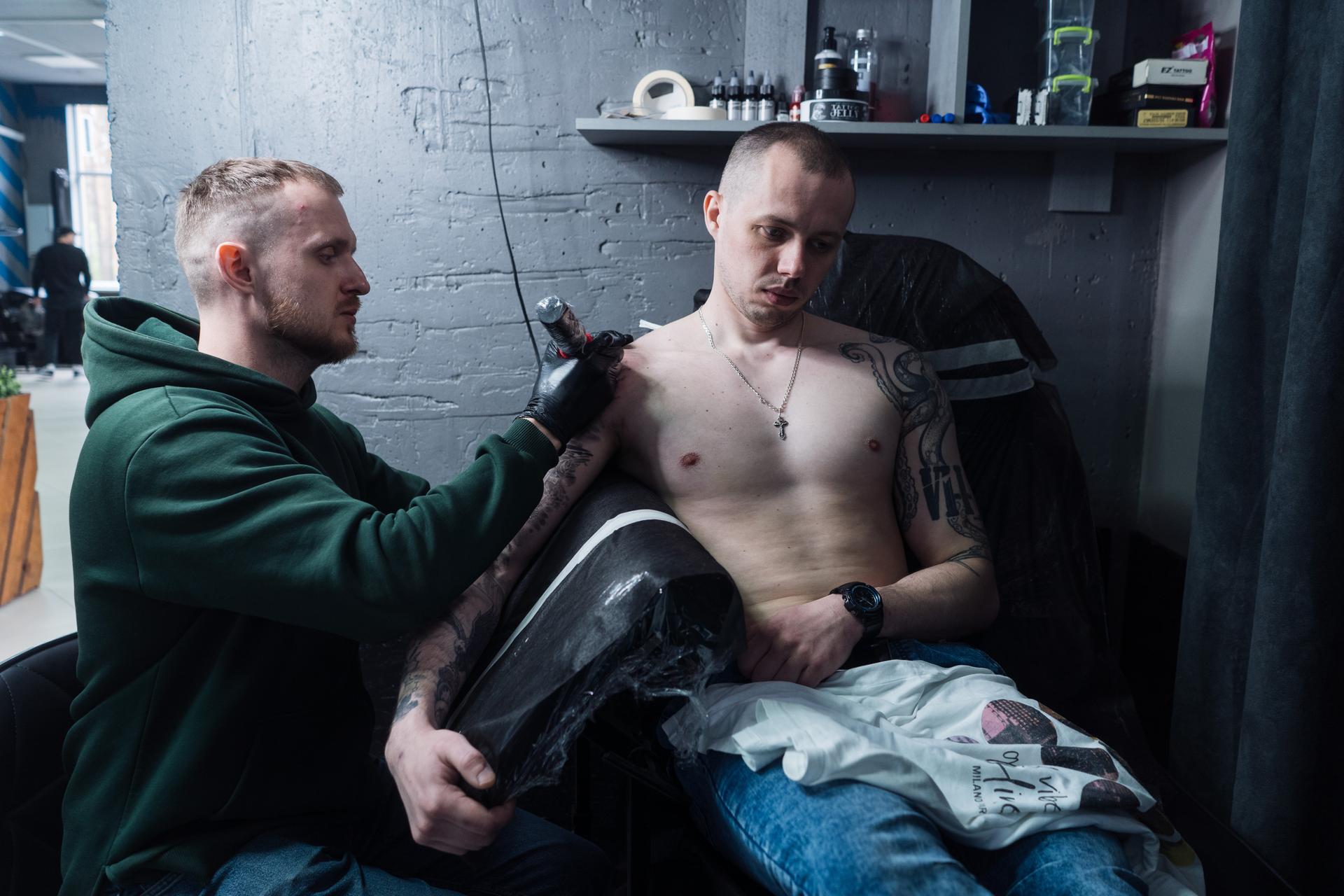
“At the beginning of the full-scale invasion, a lot of military people would come, and I would do a lot of tattoos for the soldiers,” he said.
Lukachyk said that many soldiers would get tridents, symbols of their units, their battalions, and some would get portraits of their relatives.
At the time of this interview, Lukachyk was working on Andriy Vasyanovych’s right arm, which is almost completely covered in ink.
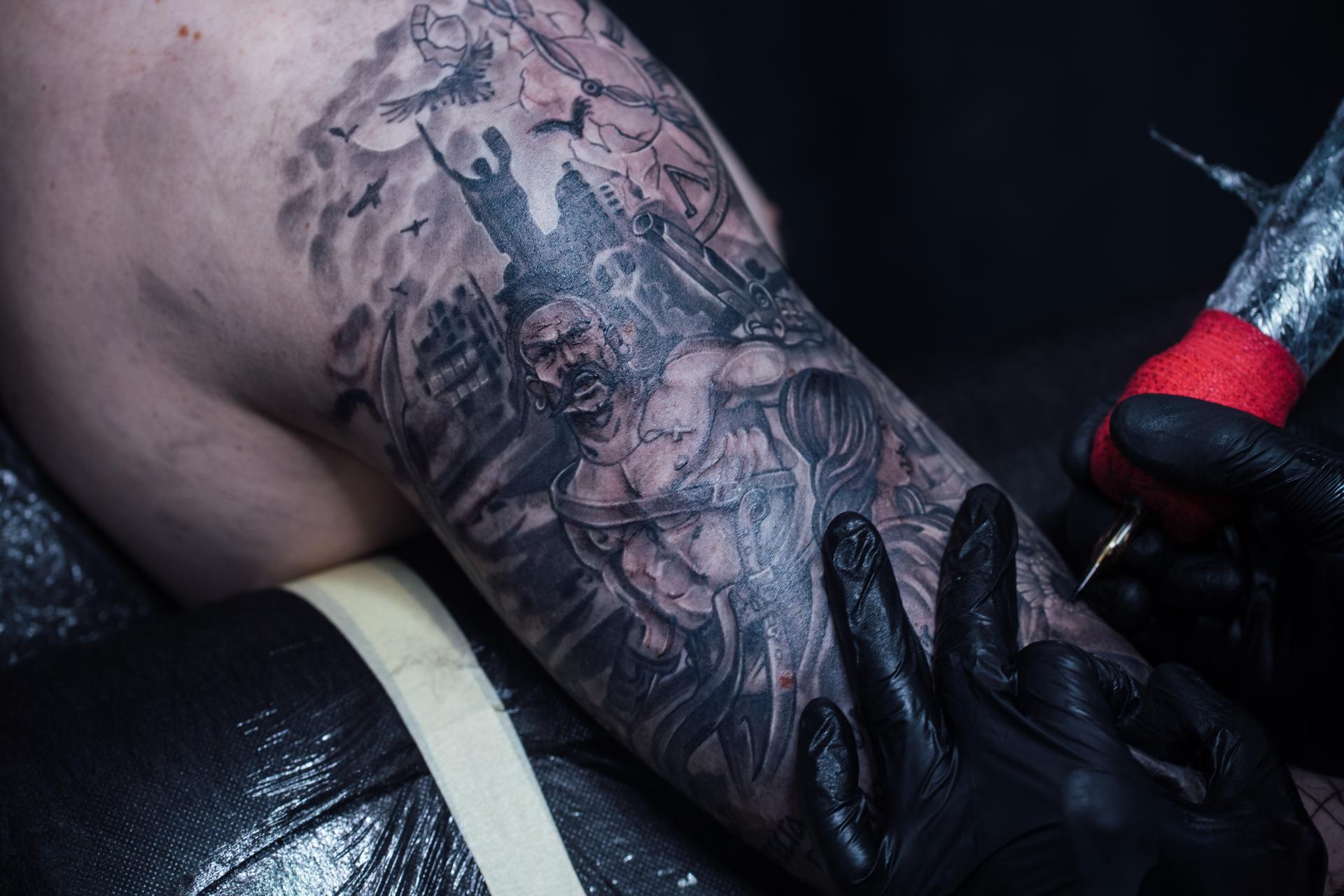
Vasyanovych pointed to the image of a Cossack, a Ukrainian warrior, the famous Motherland Monument in Kyiv, and a quote from the Ukrainian national poet Taras Shevchenko.
He said he wanted to get Ukrainian-themed tattoos before the invasion, but the war gave him that final nudge.
Darya Kurudymova is 27 years old, and she said she’s wanted to get a tattoo since she was 16.
“I’m a pretty indecisive person,” Kurdymova said. “But with war, there’s a feeling that you might not get a chance to do the things you’ve dreamed about for a long time.”
She said that the war helped her overcome many of her fears, and one thing she was afraid of at first was facing the tattoo needle.
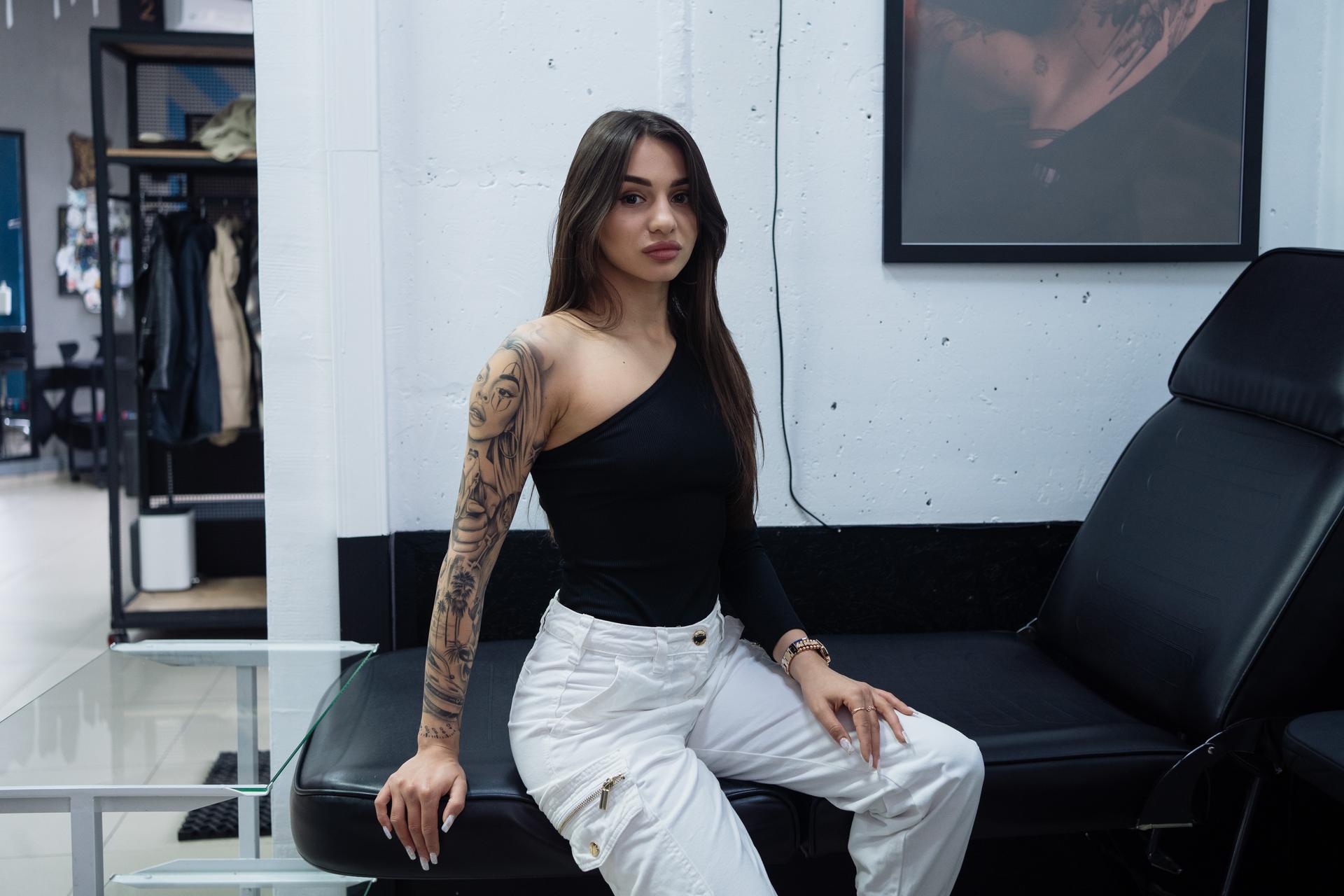
Kurudymova also said that during her sessions at the tattoo studio, air raid sirens went off on a couple of occasions, and they even heard explosions outside.
But she said that they would just keep going, no matter what.
The whole tattoo experience, she said, has had a calming effect on her.
Tattoos are not just art, Dubrovin said; in many cases, tattoos can give people confidence and and even courage, which he hopes can be another permanent outcome of his work.
“We are making big projects, [and] for these projects, we need to spend at least seven days, so while in this [process], we are [getting to] know each other really good,” Dubrovin said. “We are starting with clients and finishing with friends.”
Volodymyr Solohub contributed to this report.
